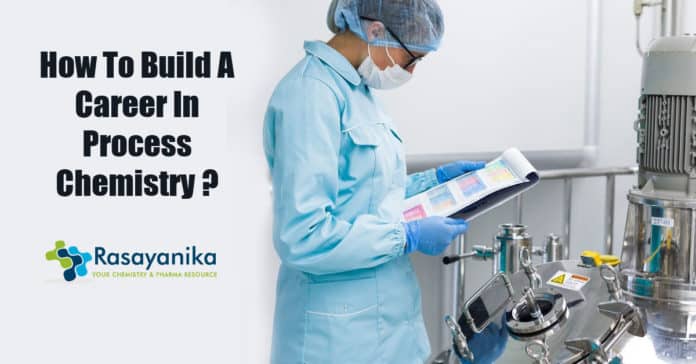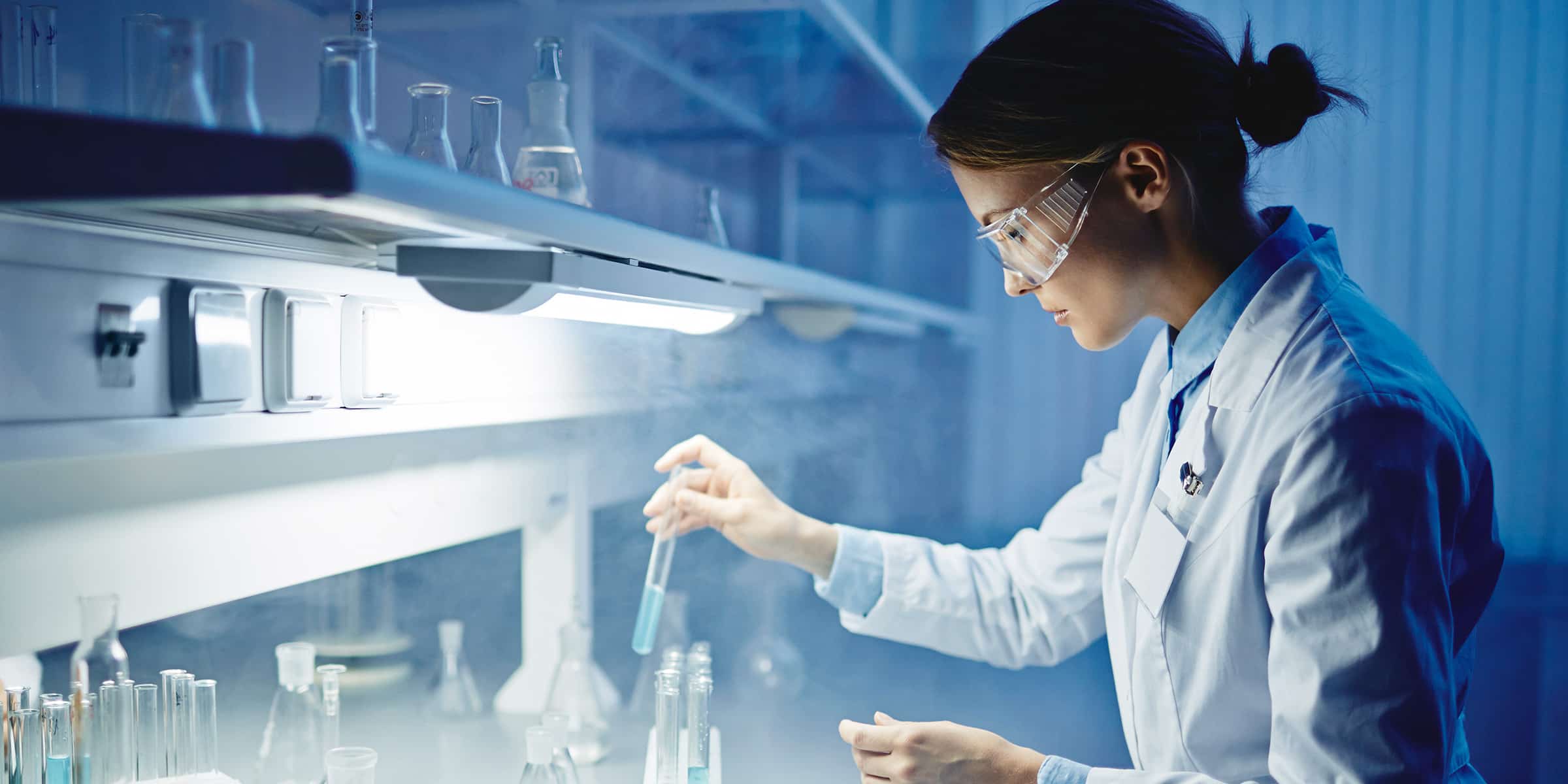Process Chemistry Career Prospects
Once a novel product is discovered in the lab, it has to be manufactured on a large scale (kg to several tonnes) cost-effectively – This is where the role of a process chemist comes in. A process chemist carries out the synthesis from milligrams to mass production. They usually work on a single target molecule and determine the most desirable route to that target.
Process chemistry is frequently portrayed as scaling up reactions, from the small quantities developed in the research laboratory to the mass quantities for commercial production.
Do you know the successful research conducted on small scales in research laboratories may not be successful on a large scale? The experiment which works perfectly on a small scale works differently on a large scale due to various reasons; moreover, some contaminations can not be detected at small scales, so the role of a process chemist is very crucial. A process chemist’s objective is to develop synthetic routes that are safe, affordable, environmentally friendly, and reliable.
Process Chemistry involves developing practical, safe, and budget-friendly processes to synthesize compounds selected to progress from research/discovery to a larger scale.
Cost-effectiveness is of eminent value in process chemistry and
consequently is the focus in consideration of the pilot plant. Process chemistry is arguably the field where most of the effort towards incorporating green chemistry has been accomplished to date.
Educational Requirement For Career In Process Chemistry
- A bachelor’s degree in chemistry, chemical engineering, or a related field is required to get an entry-level job as a process chemist.
- For higher positions, some companies also prefer a post-graduation or doctoral degree in a chemistry-related field as well as work experience in process chemistry.
- Profound theoretical and practical knowledge is required to work in this discipline.
Role of a process chemist
- Develop synthetic plans and design and run experiments to test their suitability for mass production.
- Improve existing processes.
- Analyze large data collections and ascertain how modifications in the process alter the final product.
- Maintain familiarity with regulatory regimes.
- Be informed about the recent advancements in the field.
- Monitor reaction processes.
- Follow GMP rules.
- Maintain lab records and data sheets of the ongoing process.
- Conduct statistical process control measurement error review on processes, test procedures, and equipment.
- Conduct Environmental Research.
- Troubleshoot existing processes.

Technical knowledge required for Process Chemistry Career
- Background Knowledge
- Experience in using Gas chromatography and liquid chromatography systems
- Experience in using Spectroscopy systems
- Analytical test methods
- Knowledge of raw materials, production processes, quality control
- Instrument calibration
- Equipment Maintenance
- Knowledge in the design of experiments and statistical analysis
- Experience with flow chemistry
- Isolation and identification of impurities
- Trace level analysis, to ultra-trace levels
Working Environment
Process chemists work both in the lab and the plant. They are the intermediary between the product developers who identify the novel products and the chemical engineers who are building the pilot plant or manufacturing plant for mass-scale production.
They spend part of their time at the bench, checking out new reactions on a small scale, and then conduct the same experiment or process on a large scale for successful end results.
Skills required for a process chemist
- Analytical skills
- Communication skills
- Time Management skills
- Commercially aware
- Problem-solving skills
- Capable of working well under pressure
- Comfortable working in a team
- Technical knowledge
- Good verbal communication skills
- Good computer skills
- Good maths skills
- Strong laboratory bench skills
- Multi-tasking, flexibility, judgment, and ability to prioritize
Salary
The average salary of a process chemist is around $76,000 per annum in the US. In India, the average salary for a process chemist is ₹4,67,378 per annum.
Common employers of process chemists are in the field of :
- Pharmaceutical industries
- Universities and research institutes
- Environmental agencies
- Food and agri-science companies
Professional Organizations
- American Institute of Chemical Engineers
- ACS Division of Industrial and Engineering Chemistry
- Flow Chemistry Society
Global Universities offering courses in process chemistry
- Institute of Process Research & Development, University of Leeds
- The University of Southern California, Los Angeles
- Harvard University, Cambridge
- Massachusetts Institute of Technology Cambridge
- The University of Michigan, U.S
- Northwestern University, Evanston
Top Colleges/Universities offering chemistry courses in India
- Indian Institute of Science, Bangalore (IISC)
- Jawaharlal Nehru University (JNU), New Delhi
- Banaras Hindu University, Uttar Pradesh
- University of Hyderabad, Hyderabad
- Anna University, Chennai
- Indian Institue of Technology
Future Employment Trends
Process chemistry will constantly be needed in order to take products from the lab to large-scale manufacturing as long as there are chemical and drug manufacturing, there will certainly be a need for process chemists.
According to the Bureau of Labor Statistics, the process chemist professions are predicted to have a rapid growth of 4% from 2018 to 2028. The number of job opportunities for process chemists is expected to be 3,500 by 2028. After the onset of the ongoing pandemic, the career opportunities for life science and chemistry have risen up to many folds; this will further raise even when the pandemic is over.
Career Prospects Of Process Chemistry


















































Good